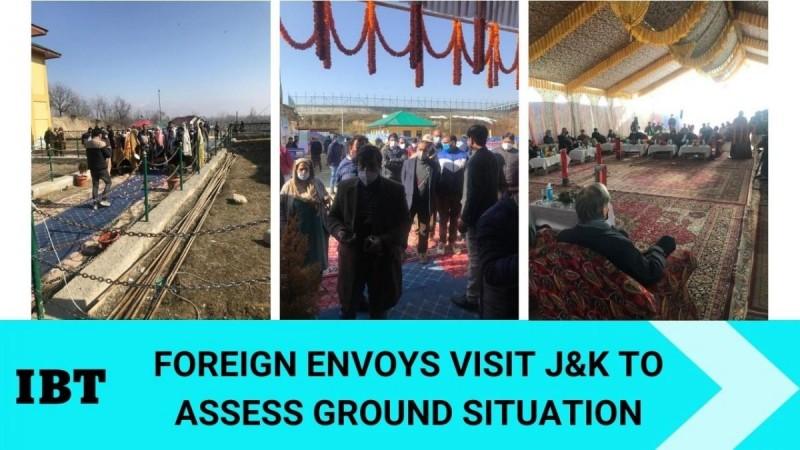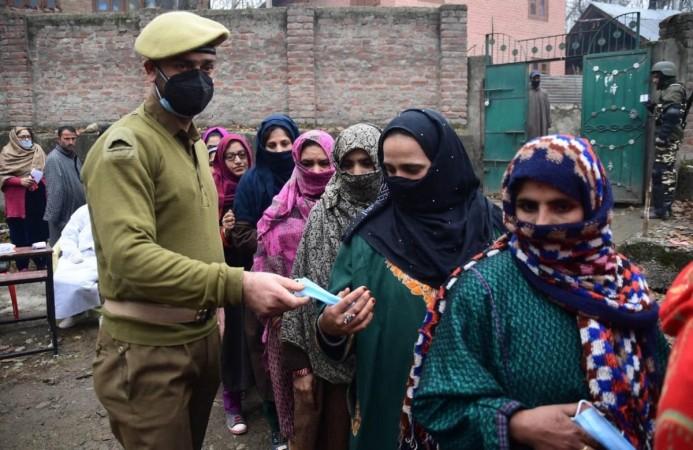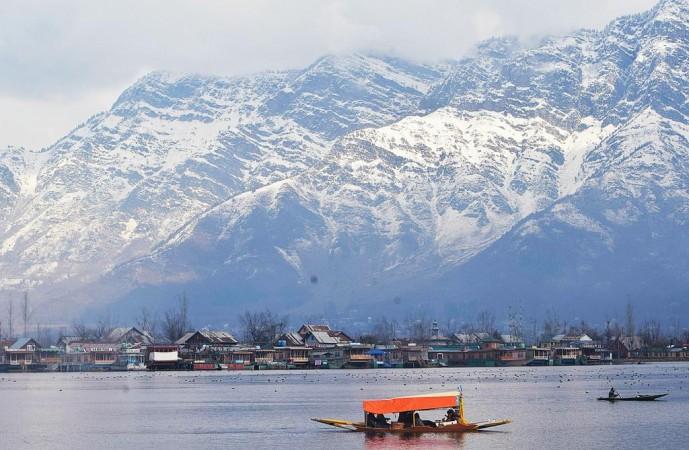A group of 24 foreign envoys representing various geographical regions from European Union (EU) and Organisation of Islamic Cooperation (OIC), visited Jammu and Kashmir for two days to assess the ground situation in the Union Territory after the recently-concluded local body elections. The purpose of the visit by foreign Heads of Missions was to witness first-hand the prevailing normalcy and democratic process in the region.
The group of foreign delegation visiting J&K on a two-day visit (Feb 17-18) included Bangladesh, Belgium, Bolivia, Brazil, Chile, Cote d'Ivore, Cuba, Estonia, Finland, European Union, Eritrea, France, Ghana, Italy, Ireland, Kyrgyz Republic, Malaysia, Malawi, Netherlands, Portugal, Senegal, Spain, Sweden and Tajikistan. This is the third delegation visit to J&K since the abrogation of Article 370 in August 2019, which revoked the special status given to the region under a special and temporary provision of the constitution.

Why facilitate delegation visits to J&K?
Prior to the outbreak of the COVID-19 pandemic, two groups of resident Heads of Missions had visited J&K in January and February 2020. The idea behind facilitating these visits was to enable foreign Heads of Missions to get a better sense of the ground situation and the prevailing normalcy in the Union Territory. Subsequently, there has been an enhanced interest in the ongoing political and democratic process, including strengthening of grassroot democracy in J&K. The present visit by the third group of foreign Heads of Missions, is in this context, to allow foreign envoys to witness, first-hand, J&K's march on the path of inclusive development and the dynamism in the grass-root democratic institutions in J&K following the successful conduct of the recent local-level elections.

Two-day visit: The itinerary
As regards their detailed programme of the visit, the group of envoys visited Srinagar, Budgam and Jammu during the two days. Yesterday, the group visited Magam in Budgam District of Central Kashmir and participated in 'Block Diwas' a grass-root level democratic outreach initiative organized regularly by the local administration in J&K, as part of efforts to promote good governance. The interaction at the Block Diwas event provided the envoys an opportunity to hear directly from the general public and local level people's representatives on the functioning of empowered grass root democratic institutions, devolution of power and developmental activities.

In Srinagar, they had a very fruitful interaction with the elected representatives of the Urban Local Bodies, District Development Councils (DDC) and the Block Development Councils (BDC) from all the districts of Kashmir Division representing various regional and national political parties. The group also visited the famous Hazratbal Shrine, the holiest and most revered mosque in Srinagar frequented by scores of locals for mass prayers.
Both in Srinagar and Jammu, the group interacted with representatives from civil society, including youth from different ethnic, religious and socio-economic communities, local business and political leaders, civil administration and representatives of mainstream media.

Today, the group of envoys visited the Chinar Corps headquarter in Srinagar where they received a briefing on the prevailing security situation, including external threats, in J&K and on the initiatives of J&K police relating to community policing and engagement.
Thereafter, they traveled to Jammu and met the Chief Justice of the UT of J&K and Ladakh, the Lt Governor of J&K, other senior officials and members of the civil society. During the interaction, the Hon'ble Chief Justice highlighted the role played by the Judiciary in enhancing access to the legal system for the common people in J&K including preserving rule of law and protect rights of the people. The Lt Governor shared the vision of peace, progress and prosperity for J&K, apart from highlighting key people-centric development projects that are underway and also planned in J&K. The visiting envoys were also made aware of the New Industrial Policy of J&K and were invited to take part in the economic growth and development of the Union Territory.

















